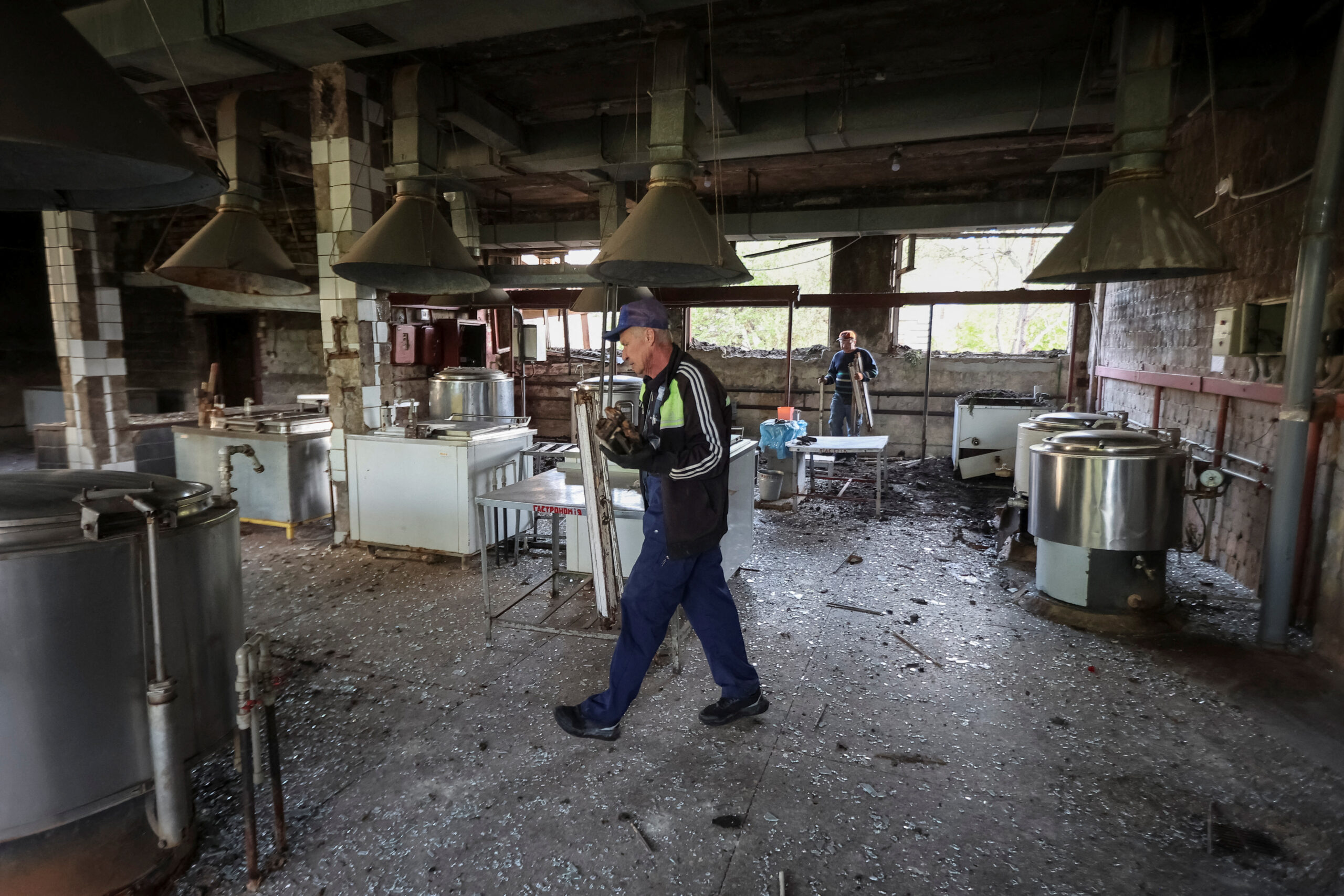
Ukrainian power stations in the west and center are bombarded by Russian missiles
KYIV: On April 27, a Russian missile attack hit power plants in the country’s west and center, applying more strain to the already fragile energy infrastructure at a time when Ukraine lacks air defenses despite significant progress in US military assistance.
The attack was the fourth significant aerial assault on the power grid since March 22 and was carried out by Russian strategic bombers stationed in the Arctic Circle. The attack used ballistic and cruise missiles.
DTEK, the biggest private energy business in Ukraine, released a statement stating, “The enemy again massively shelled Ukrainian energy facilities.”
The four thermal power plants it owned were described as “severely damaged.”
In many energy plants in the western districts of Lviv and Ivano-Frankivsk, which border NATO members Poland and Romania, rescuers fought to put out enormous fires.
Following strikes on energy facilities in the central Dnipropetrovsk region, running water was cut off in President Volodymyr Zelensky’s hometown of Kryvyi Rih.
Sadly, there was little we could do to stop the outcomes. Governor Serhiy Lysak stated that energy facilities in the regions of Dnipropetrovsk and Kryvyi Rih sustained damage and experienced fires.
According to a statement from the air force commander, 21 of the 34 inbound missiles were intercepted by Ukrainian air defenses.
As part of what the authorities claim is a crucial security measure to prevent Russia from swiftly analyzing the impact of its strikes, none of the affected sites were given names.
Although it claims the Ukrainian energy system is a valid military target, Russia denies targeting civilians during its airstrikes.
There was one injured energy worker, according to the Ukrainian authorities.
A missile hit a hospital overnight in Kharkiv, a city in northeastern Ukraine that has seen intense bombing in recent weeks. The incident caused damage to the building, surrounding water pipes, and electrical lines, and injured a lady.
According to a Ukrainian intelligence source who spoke to Reuters, Ukraine, which has been attempting to retake Russia with long-range drones in recent months, attacked the Ilsky and Slavyansk oil refineries in the Krasnodar area of Russia.
The source claimed that the buildings caught fire as a result of the Security Service of Ukraine’s drone strike. In the same southern area, Russian military airport Kushchevsk was also targeted by Ukrainian drones.
An official in charge of the plant told the Russian state news outlet Tass that the attack had damaged the Slavyansk oil refinery, forcing it to halt part of its operations.
According to officials, Ukraine has lost over 80% of its thermal generation capacity and roughly 35% of its hydropower capability. A Russian air campaign during the first winter of the conflict, which Russia initiated in February 2022, had already crippled its energy system.
Even while nuclear power provides the majority of the energy system, officials warn that the loss of that capacity, which balances the grid and could cause major issues when consumption increases later in 2024, could be problematic.
Several places have implemented rolling blackouts, but the full effect of the attacks has not been seen because of the warm weather, which has caused consumption, which typically peaks in the summer and winter, to be at a seasonal low.
In the Lviv area, which is about 900 kilometers from the eastern front, there were no scheduled blackouts as of yet, but the governor asked locals to use less electricity, particularly in the evening when demand is at its highest.
The energy system finds it challenging to keep the balance between production and consumption. We must assist,” he declared.
“Last night’s attacks underscore the ongoing urgent need for Ukraine’s allies to provide stronger air defense systems,” stated Mr. Maxim Timchenko, CEO of DTEK.
This week, the United States overcame a six-month impasse in Congress to approve a substantial aid package for Ukraine, which prevented Kyiv from running out of weapons.
The Pentagon declared on April 26 that it would purchase new weaponry for Ukraine costing US$6 billion (S$8.2 billion), including interceptors for the Patriot air defense system.
All Categories
Recent Posts
Tags
+13162306000
zoneyetu@yahoo.com



